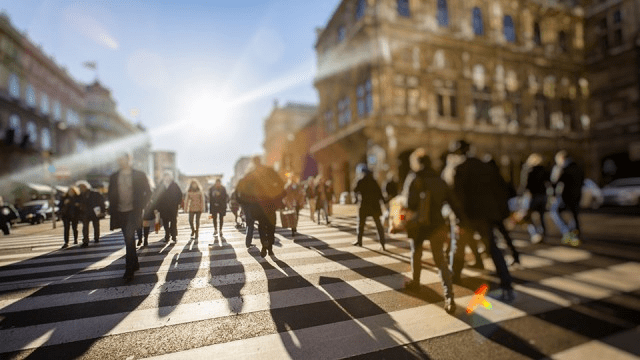Professor James Druckman finds low income Americans remain socially isolated due to pandemic
July 20, 2021

Though COVID-19 vaccines are now widely available in the U.S., Political Science Professor James Druckman found that the social effects of the pandemic are far from over.
Druckman is a member of a university consortium called The COVID States Project, which includes researchers from Northwestern, Northeastern, Harvard and Rutgers. The researchers surveyed more than 185,000 individuals across all 50 states to understand the impact the pandemic has had on social isolation and depression rates in the U.S.
For individuals making less than $25,000 a year, Druckman and his team found that social isolation had not improved from April 2020 to June 2021. By contrast, individuals with a yearly income of $150,000 or more reported some of the lowest social isolation levels over the course of the pandemic.
“Those with more resources are feeling less isolated which, in turn, could enable them to be more productive,” Druckman said. “The fear is this could exacerbate inequalities further. It makes the necessity of post-pandemic assistance clear.”

James Druckman
The survey also found that there is a strong association between social isolation and moderate to severe depressive symptoms.
Read more about Druckman’s research in Northwestern Now. Read the full report here.
AI & Data

Northwestern accelerates quantum research with NVIDIA technology
September 19, 2025
NVIDIA code could help researchers tackle computationally demanding tasks hindering quantum research Northwestern University physicists are using NVIDIA technology to tackle the computationally demanding tasks hindering quantum research. Northwestern theoretical physicist Jens Koch and his research group…

New Curriculum Leverages VR To Promote Intercultural Understanding
February 24, 2025
Claudia Quevedo-Webb, César Hoyos Álvarez, María Jesús Barros García and Spencer Striker have been named the 2025 recipients of the Alumnae of Northwestern University’s Award for Curriculum Innovation. Quevedo-Webb, Hoyos Álvarez and Barros García will incorporate virtual…

Love Data Week: NU Students Shine in Data Viz Championship
February 13, 2025
This Valentine’s Day, show your love for data. Northwestern students, faculty, and staff participate in a week-long celebration of data storytelling, creativity, and innovation as part of the international Love Data Week event. The week…

Don’t Be Duped: Here’s How to Spot Deepfakes
October 24, 2024
Not all deepfakes are bad. Deepfakes — digital artifacts including photos, videos and audio that have been generated or modified using artificial intelligence (AI) software — often look and sound real. Deepfake content has been…



